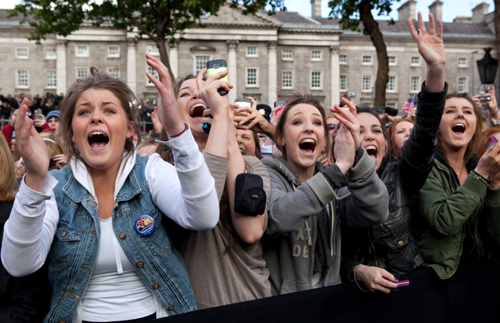Gentrification is a Progressive Boon
Think of how much better your life is with a neighborhood Target. You can get your clothes, your groceries, electronics and prescriptions filled all at one stop. You can’t do that at a small business shoe store or a bodega or a Radio Shack or a standalone pharmacy. And those smaller stores employ only a handful of people. Each Target employs hundreds. Sometimes those small stores are family owned and operated, so only one family makes the money. With Target, hundreds of families are able to earn money, in some cases with health benefits, too. This would not be possible without gentrification — without the renovation of a deteriorated neighborhood.
Gentrification Is Nothing More Than an Endless Land Grab
The following stories are true.
Talkin’ ’Bout My Gentrification
I missed the heyday of the Double Door, which had its locks changed and its spirit evicted from the shell it called home in the heart of Wicker Park for 23 years. As a high school kid from the south suburbs, the majority of my trips to the city for my preferred brand of music—and there were many of these trips—were destined for the Fireside Bowl. I left town for college in Las Vegas only three years after the Double Door opened.
When I returned to Chicago in June of 2007, I immediately began attending shows at the Double Door. And when I moved into the Bucktown/Wicker Park neighborhood in 2009, I cited easy walking access to the Double Door—and the Subterranean and other charmingly grimy, punk-artsy venues, restaurants and bars—as a leading reason for my choice in Chicago neighborhoods. That, and rent was reasonable for a single guy living on a freelance writer’s budget with a taste for cheap beer, artistic freaks, cute girls and good music.


NSFW playlists are key for getting through the workday.